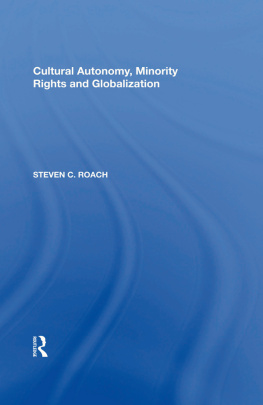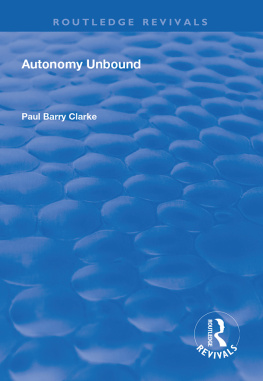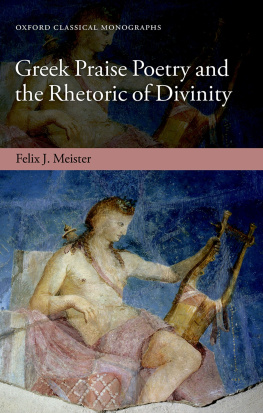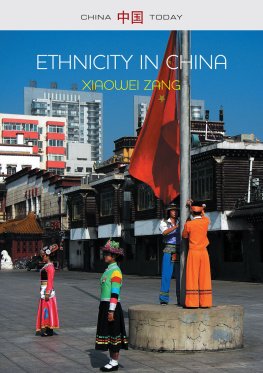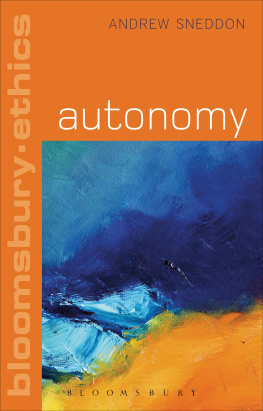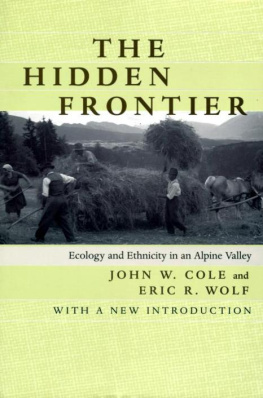The Wheel of Autonomy
Integration and Conflict Studies
Published in Association with the Max Planck Institute for Social Anthropology, Halle/Saale
Series Editor: Gnther Schlee, Director of the Department of Integration and Conflict at the Max Planck Institute for Social Anthropology
Editorial Board: Brian Donahoe (Max Planck Institute for Social Anthropology), John Eidson (Max Planck Institute for Social Anthropology), Peter Finke (University of Zurich), Joachim Grlich (Max Planck Institute for Social Anthropology), Jacqueline Knrr (Max Planck Institute for Social Anthropology), Bettina Mann (Max Planck Institute for Social Anthropology), Stephen Reyna (University of Manchester)
Assisted by: Cornelia Schnepel and Viktoria Zeng (Max Planck Institute for Social Anthropology)
The objective of the Max Planck Institute for Social Anthropology is to advance anthropological fieldwork and enhance theory building. Integration and conflict, the central themes of this series, are major concerns of the contemporary social sciences and of significant interest to the general public. They have also been among the main research areas of the institute since its foundation. Bringing together international experts, Integration and Conflict Studies includes both monographs and edited volumes, and offers a forum for studies that contribute to a better understanding of processes of identification and intergroup relations.
For a full volume listing, please see back matter
The Wheel of Autonomy
Rhetoric and Ethnicity in the Omo Valley
Felix Girke
First published by
Berghahn Books
www.berghahnbooks.com
2018 Felix Girke
All rights reserved. Except for the quotation of short passages for the purposes of criticism and review, no part of this book may be reproduced in any form or by any means, electronic or mechanical, including photocopying, recording, or any information storage and retrieval system now known or to be invented, without written permission of the publisher.
Library of Congress Cataloging-in-Publication Data
Names: Girke, Felix, author.
Title: The wheel of autonomy : rhetoric and ethnicity in the Omo Valley / Felix Girke.
Description: [New York] : Berghahn Books, 2018. | Series: Integration and conflict studies ; volume 18 | Includes bibliographical references and index.
Identifiers: LCCN 2018002589 (print) | LCCN 2018004569 (ebook) | ISBN 9781785339516 (ebook) | ISBN 9781785339509 (hardback ; alkaline paper)
Subjects: LCSH: Karo (African people)--Ethiopia--Ethnic identity. | Karo (African people)--Omo River Valley (Ethiopia and Kenya)--Ethnic identity. | Guji (African people)--Ethiopia--Ethnic identity. | Ethiopia--Ethnic relations. | Omo River Valley (Ethiopia and Kenya)--Ethnic relations. | Differentiation (Sociology)--Ethiopia.
Classification: LCC DT380.4.K357 (ebook) | LCC DT380.4.K357 G57 2018 (print) | DDC 305.8009633--dc23
LC record available at https://lccn.loc.gov/2018002589
British Library Cataloguing in Publication Data
A catalogue record for this book is available from the British Library
ISBN 978-1-78533-950-9 hardback
ISBN 978-1-78533-951-6 ebook
Contents
Illustrations
Maps
Figures
Tables
Acknowledgements
This book was many years in the making; I do hope it was the sort of ageing that wine and whiskey undergo. Since I finished my first drafts, my anthropological life has led me away from the savannah and the Omo River to the golden spires and the tumultuous streets of Yangon, the former capital of Myanmar. Especially to reassure my peers in South Omo research notably Echi Christina Gabbert, Sophia Thubauville, Lucie Buffavand and Shauna LaTosky I want to state here in writing that my departure from the Omo was surely not permanent. How could it: while the writing of this book has to a great degree been a solitary affair, the years spent in and out of Ethiopia were foundational both for me personally and for my professional work ever since. If anything, research in a Southeast Asian megacity has reminded me just how communal and neighbourly anthropological work in the company of South Omo scholars always has been and that is doubly true for my life in Kara.
To say thank you is always an odd thing in Kara. So I say tsalina. My age-set, the Nyiramalai; my clan, the Gorsbolo; my fellow riverbank dwellers at Chellhte; my mother-brothers and in-laws in Dus, Labuk and Korcho; my hunting-friends Lale and Basso; the Ologuita age-set whose initiation I could witness; all the elders who patiently explained things to me; all the households who fed and housed me again and again; the children who laughed with me, showed me things and helped me out in so many ways; and especially all members of the lineage of Kete who became my family they all know quite well what I owe them. I hope they will be pleased that this homage to life on the Omo has come out of our shared time.
To be able to work as an anthropologist in Kara was enriching like little else, and I want to thank the people and institutions who have sponsored and supported various legs of the journey. The lions share of my fieldwork was financed and logistically supported by the Max Planck Institute for Social Anthropology in Halle/Saale (MPI). I had the pleasure of enjoying the stimulating atmosphere of the MPI from 2005 to 2008, and I want to thank Professor Gnther Schlee, Director of the Department Integration and Conflict, for supporting my research. While the MPI offered a greatly supportive environment at the time, I want to specifically thank Bettina Mann for her coordination, Oliver Weihmann for technical support, Jutta Turner for the two maps included here and Cornelia Schnepel for overseeing the incorporation of this book into the Integration and Conflict Studies series.
Across the street from the MPI, Professor Richard Rottenburg at the Institute for Social and Cultural Anthropology of the Martin Luther-University Halle-Wittenberg gave me theoretical advice and moral support as well as a welcome opportunity to discuss my ideas in his colloquium. Before I came to Halle, I worked with Professor Ivo Strecker at the Department of Anthropology and African Studies at the Johannes Gutenberg-University. Ivo Strecker and Jean Lydall opened the path to South Omo for me, and Ivo has been my most important academic teacher. Together with Christian Meyer, he inducted me into the Rhetoric Culture Project, a theoretical enterprise largely founded on fieldwork in South Omo. The insights I gained through my involvement in the project since 2002 have laid the groundwork for my theoretical approach. The resident SFB Research Group 295 Cultural and Linguistic Contacts: Processes of Transformation in North-Eastern African and West Asian History financed my first three trips to Kara. At Addis Ababa University, I thank Professor Andreas Eshete, Dr Taddesse Berisso, Dr Shiferaw Bekele and Professor Baye Yimam for support, encouragement and curiosity about my work. In Jinka, I thank the representatives of the municipal and zonal administration, and especially the administrators at Mago National Park, who always allowed me to pass through on my way to Kara without paying the entrance fee. I am also grateful to the many officials from the Hamar District who eventually let me attend all those meetings I discuss in the later chapters.




